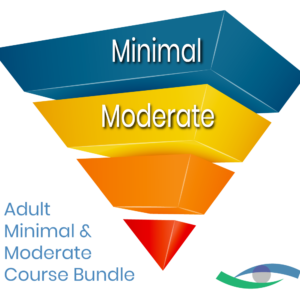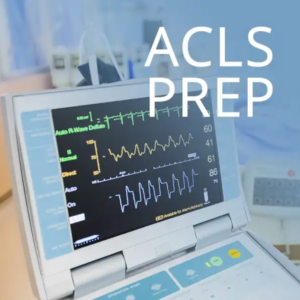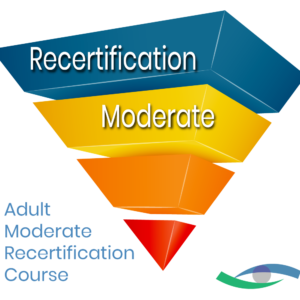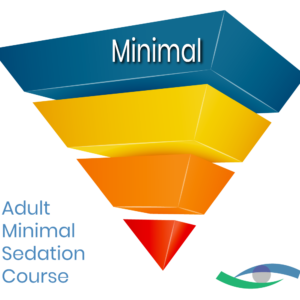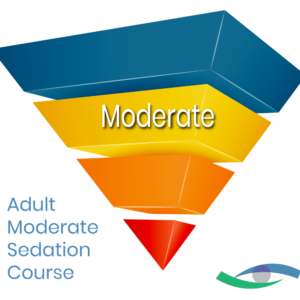Adding sedation certification to your list of credentials is a smart move. After all, medical doctors, dentists, dermatologists, plastic surgeons, and GI specialists often perform procedures requiring more than a local anesthetic but less than general anesthesia. Yet, most traditional education programs offer little to no dedicated sedation training. Healthcare providers who earn professional sedation credentials are fully prepared to manage patients under minimal or moderate sedation safely, confidently, and in compliance with industry standards.
Why Sedation Certification Matters
Procedural sedation is widely used in specialties outside the operating room, where full general anesthesia isn’t warranted, but some level of pain reduction and anxiety management is necessary. Think colonoscopies, dental implant placement, mole removal, or burn treatment. These aren’t major procedures, but they demand real-time clinical judgment and a sound understanding of sedation depth, drug interactions, and airway response.
Here’s the problem: medical and dental schools typically gloss over this crucial skill set. That’s where professional sedation training comes in. A credible certification course fills the gap with standardized, evidence-based education specifically designed for non-anesthesia healthcare providers.
Sedation Certification Benefits for Your Career
Getting certified is essential if you assist with procedures involving minimal or moderate sedation. Here’s how career growth and sedation training go hand in hand.
Boost Patient Confidence
Today’s patients are more informed, more cautious, and more likely to ask, “Are you certified for this?” Certification shows that you’ve received dedicated training in procedural sedation and can handle complications like unexpected sedation depth or airway compromise. In short, it reassures patients that you know what you’re doing.
Advance Clinical Competence
Unlike generic training models, sedation certification courses teach you how to manage minimal and moderate sedation, monitor drug interactions, and maintain proper sedation levels during a procedure. They also incorporate airway management skills that many professionals never learn formally but may desperately need. This adds a badge to your resume and makes you better at your job.
Enhance Your Marketability
Hospitals, clinics, and specialty practices increasingly prefer, or even require, providers with documented sedation training. Being certified puts you one step ahead of colleagues with similar experience but no credentials. This advances your healthcare career with opportunities for better jobs and higher pay.
Meet Legal and Institutional Requirements
Sedation is both a clinical and a legal consideration. Professional sedation credentials demonstrate that you meet guidelines set by oversight bodies. Many states and institutions require providers to be certified or verified in sedation practices before being allowed to administer certain drugs or oversee procedures.
Why Standardization Matters
Before The National Sedation Center (NSC) came onto the scene, there was no centralized program to standardize sedation certification. The resulting inconsistent practices and compromised safety placed both patients and providers at risk.
Today, NSC offers the nation’s most rigorous, standardized, and widely accessible sedation training for non-anesthesia professionals. Training matters because sedation is a continuum. Patients can shift unexpectedly from one level of sedation to the next, and it’s your job to respond if that happens. Maybe they took an undisclosed medication, or their tolerance isn’t what they claimed. Training teaches you how to prepare not just for what’s expected but for what could go wrong.
Real-World Scenarios That Demand Training
Imagine a patient scheduled for moderate sedation during a colonoscopy. Suddenly, their breathing slows, they stop responding, and your pulse ox alarm goes off. If you’re not certified, you might not know which airway technique to use, and you may fail to recognize that you’re now managing a patient under deep sedation with no time to call in backup.
Certified providers don’t panic. They assess the airway, reposition, ventilate, and reverse if needed. Most importantly, they take every step confidently. Sedation certification courses teach clinical readiness and reinforce it with hands-on skill verification.
How NSC Elevates Your Training
The National Sedation Center isn’t just another online training provider. We’re pioneers in the space, offering sedation certification courses specifically for non-anesthesia providers and filling the educational gap left by traditional programs.
Here’s what sets us apart:
- In-person skill verification: NSC is the only organization with a network of instructors across the US and Canada offering real-time skill checks.
- Web-based learning with real accountability: Complete the coursework online, then join a Zoom-based airway skills session to verify competency.
- Certification that sticks: Once you pass, you’re listed in the National Registry or Primary Source Verification database, a credential that follows you throughout your career.
- Focused on the right level: NSC doesn’t rely on outdated or mismatched certifications. Rather, we teach airway management in the specific context of procedural sedation.
- Accessible and affordable: NSC courses are priced to be attainable without compromising quality.
- Nursing CE or medical CME credits: Keep your credentials current while gaining valuable knowledge.
What You’ll Learn in a Sedation Certification Course
Whether pursuing your initial certification or renewing your credentials, NSC ensures your training is current, credible, and relevant to your practice. Here’s what you’ll learn:
- Sedation levels and how to monitor patient progression
- Drug types, interactions, and half-lives
- Patient screening and informed consent
- Airway management techniques
- Managing emergencies, adverse reactions, and complications
- Documentation and recovery protocols
Invest in Your Skills and Your Career
Sedation certification elevates your standard of care, builds patient trust, and increases your aptitude in any practice setting. NSC has made it our mission to empower providers like you with the knowledge, confidence, and clinical skill to safely deliver minimal or moderate sedation in outpatient and procedural settings. Our standardized, evidence-based training offers in-person skill verification, flexible course options, and sensible pricing. There’s no better partner for your professional development!
Ready to explore our adult sedation courses? Contact us with any questions you have, or register for a course to take your healthcare career to the next level.


